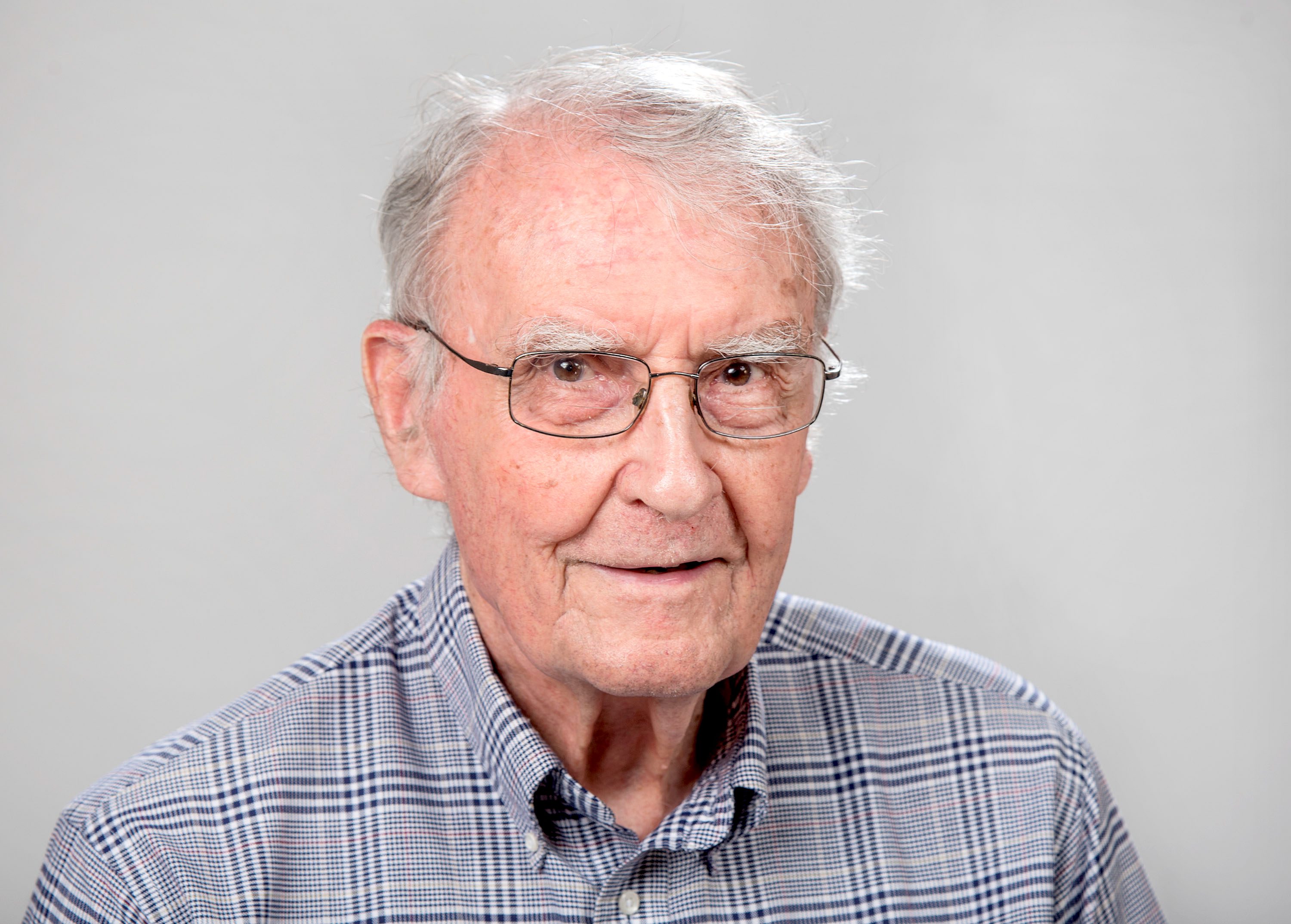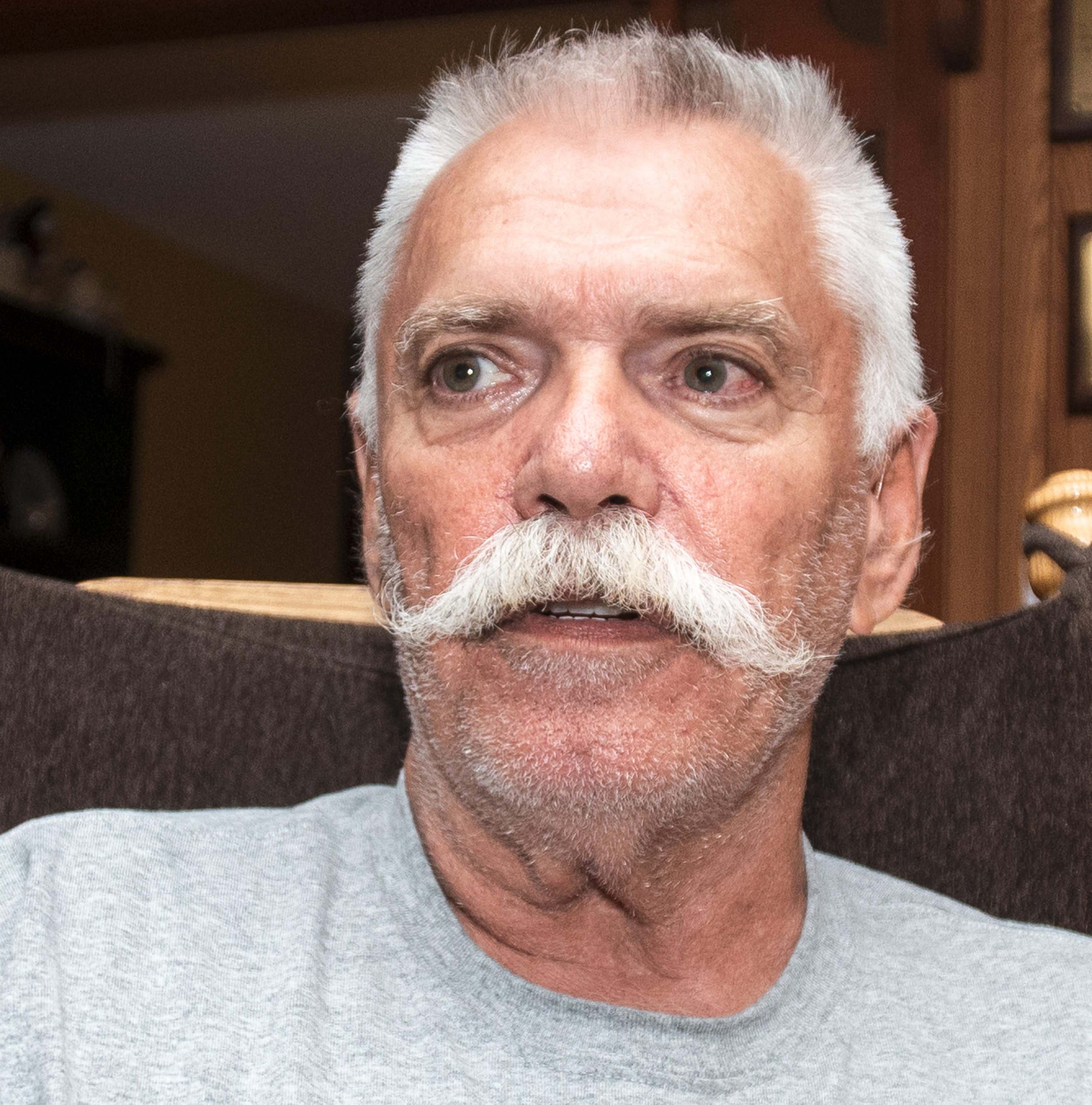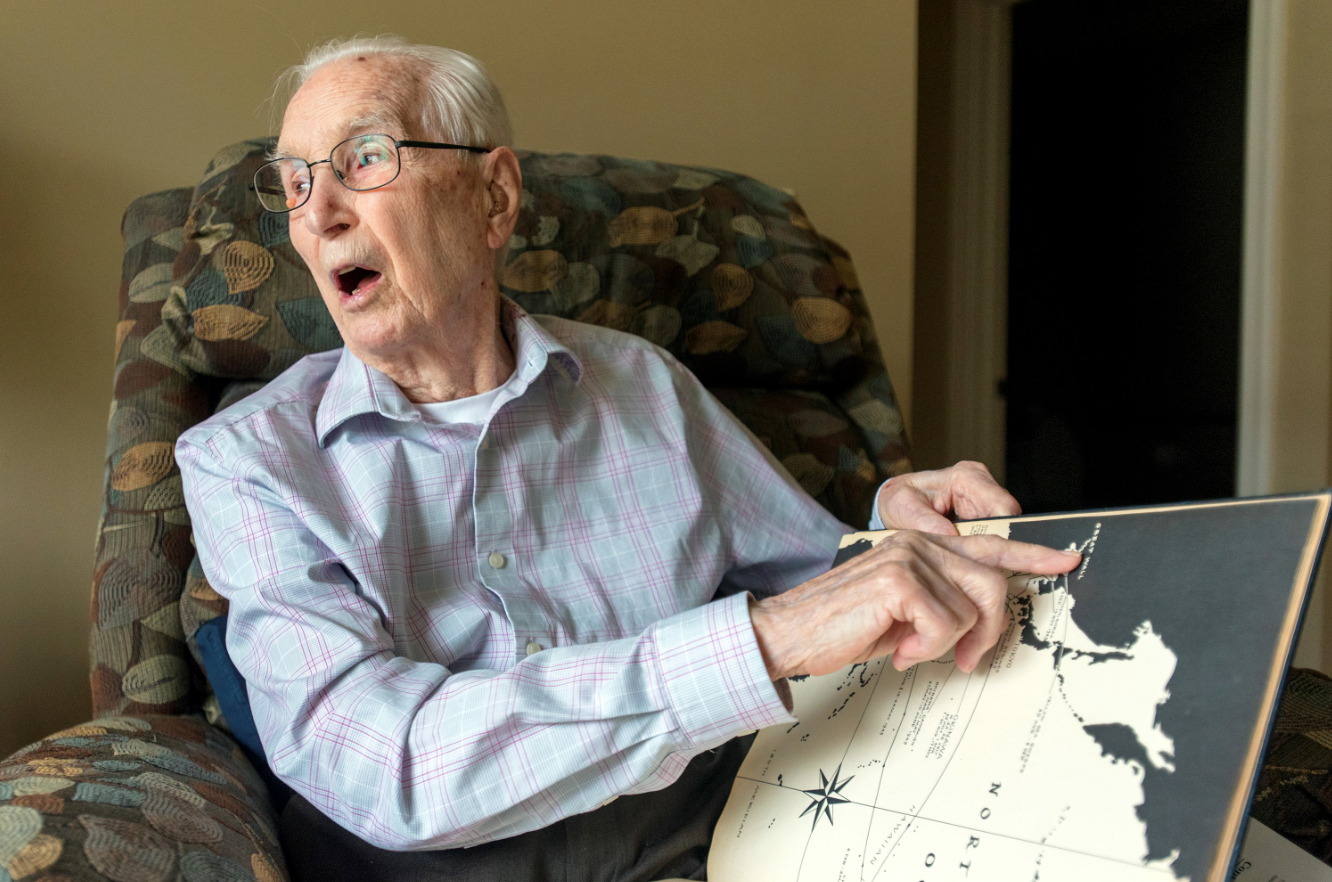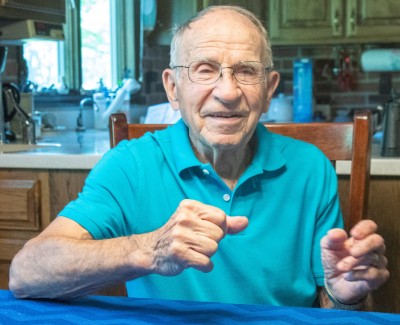Jesse Dowell
By Paul Wood

Photo By Heather Coit/The News-Gazette
CHAMPAIGN — Navy bombardier Jesse Dowell trained for the invasion of Japan in 1945 by flying 500 feet over the ground, strafing or bombing a beach to set off any land mines that might kill Marines or infantry coming in off landing crafts.
Now 91, he was 18 at the time, and trained to fly all night to prepare to “kill everyone on the beach.”
Of course, that could also mean being killed by flying so low that even a handgun could puncture a fuselage.
“The admiral wanted to show he brave he was,” Dowell says. “They could just shoot straight up in the air and hit us.”
The bomb group was all volunteer. After they volunteered, the admiral gave them an offer: “If you want to drop out, you can be the guy on the beach, trying not to hit a land mine.”
“It wasn’t a kissing contest,” Dowell says. “It was a killing contest. General (Douglas) MacArthur was an expert.”
Dowell’s fellow Navy fliers were highly motivated by the attack on Pearl Harbor and other U.S. holdings in the Pacific in 1941.
Growing up on a farm that’s now part of the Lake of the Woods Forest Preserve, Dowell was so eager to fight that he convinced his parents to let him enlist at 17.
Dowell had classified training for the highly specialized missions that would mean all-night flying over the water. Because of the sheer length of the flights, the Martin PBM Mariner, a patrol bomber flying boat, had three pilots so others could nap.
Dowell was the lead bombardier in his group, as well as a machine gunner tasked with the strafing using .50 caliber machine guns.
The mission was to literally bomb and strafe all night. He learned to fire one machine gun until just before it got too hot, then switch his trigger finger to the other.
“We had new bombers that the lady fliers had flown in,” he says. Women could fly the planes in World War II, but not in combat.
His PBM had a more accurate new radar bomb sight.
The flying boat was fully loaded with bombs and about to fly from Corpus Christi to California to Hawaii to a small island base — and then to Japan to end the war “in one knife blow.”
As they readied to take off, the war with Japan did end, mightily, with the dropping of atom bombs. He says 100,000 men were set for the invasion of Japan’s main island, and the generals and admirals expected heavy resistance.
His air group did not escape unscathed, however.
Training for night flying over a darkened Japan was so specialized that one plane, flying at night over unlit ground, missed the landing strip. Some 19 of the 33 on board were killed.
His memories include other casualties of training, such as a man killed when he walked into the arc of a propeller.
“I’ve always been lucky,” he says. “I’m just happy since I came home with no holes in me.”
After the war, he graduated from the University of Illinois in agriculture on the GI bill. Then he farmed about two years.
He and his father then switched into farm management.
By the end of his career, Dowell managed the largest farm estate in Illinois — the Sibley Estate, with more than 13,500 acres and 129 farm houses — in the years before he retired at 65.
He and his wife Dorothy, who is still with him, have a son and a daughter.
Do you know a veteran who could share a story about military service? Contact staff writer Paul Wood at pwood@news-gazette.com.
Read more stories from local veterans:
 Phil Wilhelm
MAHOMET — Phil Wilhelm’s body still carries within it shrapnel dating to his two tours of duty in Vietnam. The sergeant, …
Phil Wilhelm
MAHOMET — Phil Wilhelm’s body still carries within it shrapnel dating to his two tours of duty in Vietnam. The sergeant, …
 Thomas Labney
SAVOY — From freezing in Alaska to boiling just above the engine room in the humid South Pacific, Thomas Labney shipped …
Thomas Labney
SAVOY — From freezing in Alaska to boiling just above the engine room in the humid South Pacific, Thomas Labney shipped …
 Joseph T. Houska
WHITE HEATH — Now largely forgotten, the Suez Crisis threatened to set off a major war in the Mideast. Navy veteran Jose …
Joseph T. Houska
WHITE HEATH — Now largely forgotten, the Suez Crisis threatened to set off a major war in the Mideast. Navy veteran Jose …